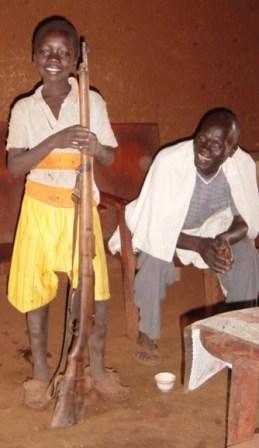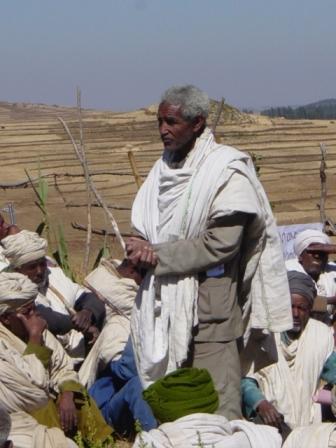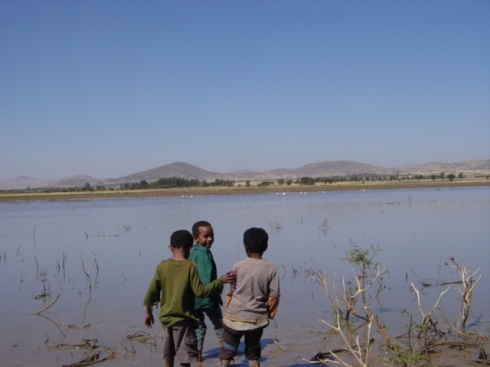Moses said to the Lord, “O Lord, please send someone else to do it”. (See Exodus 3 and 4) I have looked at that verse and Chapters 3 and 4 a number of times the last couple of weeks. Moses felt inadequate and I must say, so do I. His task was a tad bit bigger than mine but I can sure relate to his feelings. “Lord, isn’t there someone else who can do the better job than me?”
Another set of verses I have been studying of late are: Isaiah 46:9-11.
Remember the former things, those of long ago; I am God, and there is no other; I am God, and there is none like me. I make known the end from the beginning, from ancient times, what is still to come. I say: My purpose will stand, and I will do all that I please. From the east I summon a bird of prey; from a far-off land, a man to fulfill my purpose. What I have said, that will I bring about; what I have planned, that will I do.
These verses are so full of meaning. He knows the end and the beginning. Nothing can stop His purpose, not even my disobedience or lack of faith. He will bring His will about via a bird or a person from a distance land. ALL He plans will come to pass.
I have also been studying and contemplating Mark 11:22-24 quite a bit too: “Have faith in God,” Jesus answered. “I tell you the truth, if anyone says to this mountain, ‘Go, throw yourself into the sea,’ and does not doubt in his heart but believes that what he says will happen, it will be done for him. Therefore I tell you, whatever you ask for in prayer, believe that you have received it, and it will be yours”.
If you’ve read this far you might to wondering, “What’s up with this guy?” Well, my contract as Director of Food for the Hungry/Ethiopia is up in June.
Decision time.
The wonderful thing is that my boss in Kenya wants me to stay on Ethiopia but on top of that Food for the Hungry United States has asked me to join their team in Washington DC. So Donalda (my wife) and I are facing a big decision and I feel like Moses. I have not been happy with my leadership in Ethiopia of late and have felt overwhelmed with it all at times. The job in Washington would be quite different from my current job and again I feel like Moses, “O Lord, please send someone else”.
So, what’s my problem? I have an idea but I don’t really know.
One thing I know is that I married a woman named Donalda who should be called Ruth. This woman has gone with me from Haiti, through grad school in Virginia and Alabama, off to the “bush” in Ethiopia to teach at an isolated university, to Addis to work with FH, to Canada for six years and back to Ethiopia again. I have been truly blessed with this wonderful partner and two amazing children.
So after a long season of prayer and internal struggle, “Ruth” and I have decided to join the FH team in Washington. We have prayed for God’s guidance and believe (Mark 11) we have received it (“I believe Lord, help me in my unbelief”). As I look at all there is to do in Ethiopia and all the possibilities and the incomplete business I know that God will summon a bird of prey from the east or a man from a far-off land to fulfill His purpose in FH/Ethiopia. Don’t fret my dear friends about the CDP in Zeway or Belo Jegnufoy. ALL of God’s plan will come to pass, He will summon His man (or woman) to fulfill His purpose here, and even though that person says “Oh Lord, please send someone else to do it” they will obey and God will do great things.
In the end, “A man’s steps are directed by the LORD. How then can anyone understand his own way?” Proverbs 20:24.
Best to you and yours,
Andy
 The consequence of the conflict is brutal where by 1,700 houses were burned from both Belo and Sasiga communities, over 2, 414 families or 16,000 people displaced, over 1,285 CDP families were affected, over one hundred people died, of which we proved 2 CDP children were died during the conflict and schools were affected which will make normal teaching process difficult by the end of September 2008 for the new academic year.
The consequence of the conflict is brutal where by 1,700 houses were burned from both Belo and Sasiga communities, over 2, 414 families or 16,000 people displaced, over 1,285 CDP families were affected, over one hundred people died, of which we proved 2 CDP children were died during the conflict and schools were affected which will make normal teaching process difficult by the end of September 2008 for the new academic year.



Recent Comments